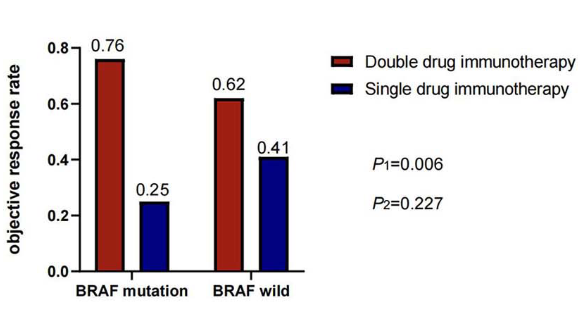Intrinsic resistance and efficacy of immunotherapy in microsatellite instability-high colorectal cancer: A systematic review and meta-analysis
DOI:
https://doi.org/10.17305/bjbms.2022.8286Keywords:
Colorectal cancer, MSI-H, intrinsic resistance, efficacy, immunotherapyAbstract
Some patients with microsatellite instability-high colorectal cancer (MSI-H CRC) have shown a poor response to immunotherapy in clinical trials. We investigated the intrinsic resistance to and efficacy of immunotherapy in patients with MSI-H CRC. The PubMed and Web of Science databases were searched using keywords such as “colorectal cancer,” “immunotherapy,” and “clinical experiment.” Random-effects models were used to generate the combined complete response, partial response, stable disease, progressive disease, objective response rate (ORR), disease control rate (DCR), and incidence of adverse events. We then performed a subgroup analysis based on the ORR and incidence of intrinsic resistance. The meta-analysis included seven clinical trials. The incidences of complete response, partial response, stable disease, and progressive disease summarized by the random-effects model were 8%, 37%, 26%, and 25%, respectively. The ORR and DCR were 45% and 71%, respectively. The ORRs of programmed cell death protein 1 inhibitor (anti-PD-1), programmed death ligand 1 inhibitor (anti-PD-L1), and anti-PD-1 combined with cytotoxic T lymphocyte-associated antigen 4 inhibitor (anti-CTLA-4) immunotherapy were 38%, 54%, and 57%, respectively. The ORR of immune checkpoint inhibitors for first- and third-line therapy was 56% and 32%, respectively. Dual-drug immunotherapy significantly reduced the incidence of intrinsic resistance to immunotherapy (12% vs 31%). The incidences of intrinsic resistance to first-line therapy and second-line and later therapy were 29% and 26%, respectively. Approximately 25% of patients with MSI-H CRC had intrinsic resistance to immunotherapy. Anti-PD-1 combined with anti-CTLA-4 significantly increased the ORR, thereby reducing the incidence of intrinsic resistance. Moving immunotherapy into earlier lines of therapy, although not reducing the incidence of intrinsic resistance, can improve the ORR in patients with MSI-H CRC.
Citations
Downloads

Downloads
Additional Files
Published
Issue
Section
Categories
License
Copyright (c) 2023 Ren Wang, Jie Lian, Xin Wang, Xiangyi Pang, Benjie Xu, Shuli Tang, Jiayue Shao, Haibo Lu

This work is licensed under a Creative Commons Attribution 4.0 International License.









